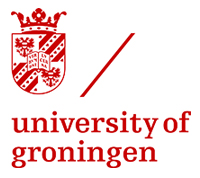
University of Groningen (UG)
If you are looking for a university with a long tradition of academic excellence, where you can develop your talents in a pleasant and international atmosphere, you will find it at the University of Groningen. The University of Groningen has a long academic tradition extending back to 1614, which makes Groningen the oldest university in the Netherlands after Leiden. Many very talented people in a variety of disciplines have studied or worked at the university during its 400 years of existence, including two Nobel Prize winners, the first female University student in the Netherlands and the first female lecturer, the first Dutch astronaut and the first president of the European Bank. As our students and staff come from the Netherlands and from at least 100 other countries, the University of Groningen is truly international and offers a perfect climate for scientific research, educational innovation and personal development.
Learn more about the University of Groningen.
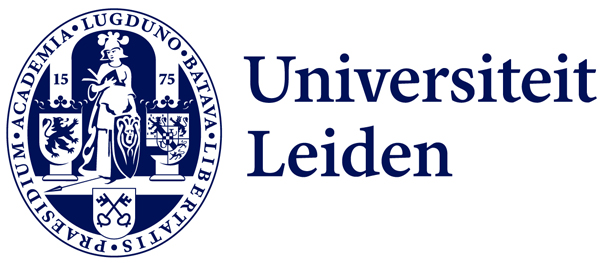
Leiden University (LU)
Leiden University is one of Europe’s leading international research universities. Thanks to its more than 6,500 committed and inspired employees, the university enjoys a leading role in academic research and education. As far back as 1575, Leiden University researchers have been leaving their mark on the world. They conduct ground-breaking research, provide medical breakthroughs, write trailblazing books and have been awarded 15 Nobel Prizes and 21 Spinoza Prizes for their pioneering work. Leiden University is a fertile environment for top talent. Leiden also scores very well every year in prominent rankings. This means that, to maintain our position, the bar is set very high. Regardless of the work you do at our university, you are always encouraged to broaden your horizons, develop your talents and reach your full potential.
Learn more about Leiden University.
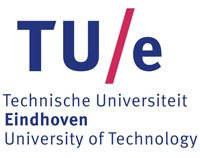
Eindhoven University of Technology (TU/e)
Eindhoven University of Technology (TU/e) is a research university specializing in engineering science & technology. Established in the 1950’s, it has always had strong values: optimism, collaboration and a dedication to society. These values helped Brainport Region Eindhoven flourish, and resulted in our university being ranked number 1 by Times Higher Education Ranking for collaboration with industry. Our publications have high citation scores, consortia we are part of have won prestigious grants and our researchers receive scientific accolades on a regular basis. This distinguishing excellence is based on our three-pillar strategy: attracting talent, using a multidisciplinary approach and providing a stimulating research environment.
Eindhoven University of Technology is an international university, where one third of the academic staff consists of international employees. Moving to another country, with its different habits, rules and procedures, is a big step. To ensure you feel at home as quickly as possible, we will do everything in our power to smoothly guide you in your move to Eindhoven.
Learn more about Eindhoven University of Technology.
About the participating research institutes
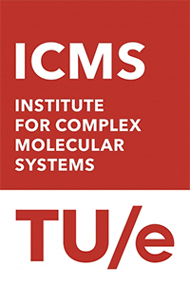
Institute for Complex Molecular Systems (TU/e)
The Institute for Complex Molecular Systems (ICMS) is dedicated to a fundamental understanding of complexity in molecular systems. It address research challenges and pushes the boundaries of science by unifying basic principles of chemistry, biomedical sciences, engineering, physics and mathematics. The obtained knowledge provides the foundation for the development of future technologies in materials science, energy, mobility, and health. In particular, we actively pursue two major goals. First, our focus is on the design and synthesis of smart materials for the creation of molecular devices. Secondly, we use our expertise to unravel the molecular complexity of living systems and to develop biology into an engineering science.
ICMS includes both senior researchers with an excellent track record (e.g. 3 winners of the prestigious Dutch Spinoza Award, 6 members of the Royal Dutch Academy of Arts and Sciences of which 2 were awarded with the Academy professorship) and young talents (e.g. 3 NWO-VIDI Award winners in 2017, 4 ERC laureates). They join forces to push the frontiers of complex molecular systems. Furthermore, academic and industrial parties worldwide find their way to the institute to initiate collaborations on inspiring academic and industrial challenges.
Learn more about the Institute for Complex Molecular Systems.
Related advisor:

Groningen Biomolecular Sciences & Biotechnology Institute (UG)
The Groningen Biomolecular Science and Biotechnology Institute (GBB) originates from intensive collaboration between research groups with roots in the disciplines Biology and Chemistry. Since 1992 GBB functions as a research institute within the Faculty of Science and Engineering (UG). From 1993, GBB also functions as a accredited Dutch research school for PhD students; the latest renewed accreditation from the Royal Netherlands Academy of Arts and Sciences (KNAW) has been obtained in 2009. At present GBB is composed of 12 research groups, each headed by a full professor.
GBB is a centre for top noted research and teaching in biomolecular sciences, hosting the subdisciplines biochemistry, bioinformatics, biophysical chemistry, cell biology, chemical biology, enzymology, genetics, microbiology and systems biology. The focus is on curiosity-driven science, with application outlets into (industrial) biotechnology and biomedicine.
Learn more about the Groningen Biomolecular Science and Biotechnology Institute.
Related advisors:

Groningen Institute for Evolutionary Life Sciences (UG)
The Groningen Institute for Evolutionary Life Sciences (GELIFES) aims to provide a better understanding of fundamental biological processes by integrating mechanistic and evolutionary approaches, both in our research, education and public outreach, and to contribute where possible to the solution of societal problems. Our research fields cover a wide array of expertise, ranging from neurobiology, physiology, genomics and behaviour to ecology and evolution, from molecular genetics, theoretical modeling and brain analyses to organismal and species interaction studies in semi-natural conditions and in the field. Studying mechanisms within an evolutionary and ecological framework requires the use of a large diversity of model organisms. Therefore we study a wide array of species, from microbes, algae, plants and insects to vertebrates such as fish, birds, rodents, marine mammals and humans. As the ability to adjust to environmental, developmental or physiological changes is a key aspect of living systems, this adaptation is a key issue in our research. Our institute is the driving force of a large program called Adaptive Life.
Learn more about Groningen Institute for Evolutionary Life Sciences.
Related advisors:

Kapteyn Astronomical Institute (UG)
Research at the Kapteyn institute covers a range of astrophysical areas, from cosmology and galaxy formation to the origin of stars and planets. These domains are connected to the network themes of the national top research school NOVA. Furthermore a substantial amount of effort goes into the development of advanced instrumentation for ground- and space-based telescopes, in collaboration with SRON Netherlands Institute for Space research and the ASTRON institute for radio astronomy. An upcoming area of interest is data science and virtual observatories, in collaboration with the Donald Smits Center for Information Technology.
Learn more about Kapteyn Astronomical Institute.
Related advisors:
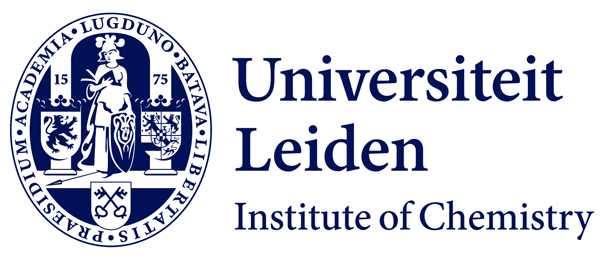
Leiden Institute of Chemistry
The Leiden Institute of Chemistry (LIC) is the basis for research and collaborations of the Leiden chemistry groups. Chemistry is the central science enabling a healthy future in a sustainable society. Chemistry researchers at Leiden University take a fundamental approach in finding tailored solutions for complex societal problems in human health and environmental issues.
Learn more about the Leiden Institute of Chemistry.
Related advisors:

Stratingh Institute for Chemistry (UG)
The Stratingh Institute for Chemistry is a research institute at the Faculty of Science and Engineering of the University of Groningen. The mission of the Stratingh Institute for Chemistry is to perform excellent research and teaching in molecular and supramolecular chemistry. Core activities in the chemical sciences such as bioorganic chemistry, organic chemistry, molecular inorganic chemistry and molecular materials chemistry are embedded in the institute. The research programme is focussed on synthesis, catalysis, functional materials, bio-organic chemistry/chemical biology and systems chemistry/complex molecular systems.
Learn more about the Stratingh Institute for Chemistry.
Related advisors:

Zernike Institute for Advanced Materials (UG)
The Zernike Institute for Advanced Materials (ZIAM) at the University of Groningen’s Faculty of Science and Engineering is simultaneously young and old. We got our current name on 16 January 2007, making us quite young, but we grew out of the Materials Science Centre, which started back in 1970. Much has changed since those early days, but there are a few constants. Possibly our greatest asset is the close collaboration between people with different backgrounds. Physicists and chemists, and increasingly biologists, theoreticians and experimentalists work closely together, giving the Institute a breadth rarely found elsewhere. In our efforts we involve the whole chain of knowledge; modelling, design, synthesis, characterization, physical properties, theory and device functionality.
Together with the Stratingh Institute for Chemistry and the Groningen Biomolecular Sciences and Biotechnology Institute we run the Advanced Materials program, which was awarded the status of national research centre (NRC) for materials science by the Dutch government in 1999. This distinction came with considerable additional funding, which has allowed our programme to develop a long-term vision and plan. After thorough evaluation, our status as national research centre has been extended. The Zernike Institute NRC research program includes 40 faculty members, 80 researchers (permanent and temporary), 230 PhD students and 30 support staff.
Learn more about the Zernike Institute for Advanced Materials.
